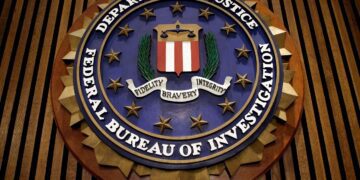The question of the year is, how should we manage our elections?
Perhaps this should actually be the question every year, as study after study, and numerous convictions – all over the country – have proven that vote fraud is real and widespread, not just some localized Chicago problem or political red herring.
But with pandemic-related calls for sweeping changes in our voting methods this year, with an effort to rush them through without so much as a chance for analysis and discussion, we risk turning our elections from merely imperfect to worse than useless.
The Issue of the Day
Let’s begin by stating the alleged justification for a change: Due to fear of the CCP Virus (or COVID-19, or Wuhan Flu, or whatever you want to call it), state and local governments across the country have pushed a wide variety of statutes, recommendations, and government office redesigns. They have mandated the wearing of masks, scarves or bandanas, mandated one-way arrows for supermarket aisles, closed the doors of restaurants, theaters and nightclubs, put thousands of stores and hotels out of business, and put millions of people out of work. All ostensibly to protect people from this virus.
The Left now proposes that we close down our polling places too, just as we have shut down half the economy. Don’t hold a real election at all, they say; just do it by mail, as we do with Publisher’s Clearing House, and national party surveys, and birthday cards and car dealer brochures. Flood the mailboxes with ballots, let people return them at their leisure, and hope they show up in time to be counted.
But before we go into the plethora of problems with that proposal, why not ask whether it’s even necessary?
· Virtually all serious analysts admit that the virus is mutating downward; new infections don’t compare with the severity and even occasionally fatal illness that hit America earlier in the year.
· Unlike a department store where one might spend half an hour or more, or a restaurant where one might spend over an hour, people are only in a polling place five to fifteen minutes, on average, in most states. The exposure to other people is far less than in the WalMarts and grocery stores that we have allowed to stay open, and it’s just a once-or-twice-per-year visit, not a daily or weekly excursion.
- Since some people are unavoidably away from home on election day – in the hospital, on vacation, traveling for business, serving abroad in the military, etc. – we created absentee ballots, a system wherein ballots are mailed to carefully vetted voters well in advance of the election, so they can return them by mail, hopefully by election day. This system robs them of the information of the final weeks of the campaign, and adds to the risk that their votes may not arrive in time to be counted, but these negatives are considered acceptable – only because without absentee ballots, they could not vote at all. (So, contrary to the current political claim, nobody has ever said that absentee voting was desirable, just that, despite its flaws, it's better than nothing).
- Since some people claim inconvenience, or have an irrational fear of lines, in recent years, various states began to allow in-person early voting, one or two weeks before Election Day. Ostensibly, this would lighten the lines on the real Election Day and enable more people to participate. Since it's in person, the sanctity of the election could still be somewhat protected, as each voter would be checked against their registration, and at such physical polling places, the ballots could be secured. But it does carry the severe negative of cutting off those final weeks of the campaign; by leaving the concept of a single election day, we risk different groups of voters making their decisions based on incomplete information. This fall, some states are planning on well over a month of early voting, infinitely compounding these problems.
- Worst of all, we have allowed onsite voter registration and automatic voter registration at the department of motor vehicles, both of which increase the odds of vote fraud by enabling/encouraging non-citizens to vote, and reducing or eliminating the ability to catch the error in time.
- Mail-in voting eliminates the sanctity of the voted ballot. There are no mixtures of Republican and Democrat pollworkers watching as the voter drops the ballot in the blue collection box, and there are no Republican and Democrat pollworkers meeting it upon delivery. No witnesses are in place to see who drops it in the mail; it travels through multiple hands as it moves across the country or the world, and it is finally opened by local bureaucrats, in the cities, members of one party's machine.
- When "push" mail-in voting is used, there is minimal vetting, if any, to guard against multiple voting or noncitizen voting. Ballots are mailed out to every voter and the voters either vote it or not, with no procedure for disposing unvoted ballots to prevent them from falling into the wrong hands. Who's to say that one partisan in an apartment building won't collect the ballots for his building upon delivery, and cast the ballots himself, without the voters' permission? It happens; the only unknown is how often.
- Even when legitimate mail-in voting is used as a last resort – as for military families stationed abroad, there are multiple reasons why their votes often don't count. Many states simply don't finalize their ballots with enough time built in, they arrive too late, the servicemen or other expats don't mail them back in time, they're delayed in the mail, they arrive after the election, sometimes much too late. It's often not the post office's fault; the time window simply doesn't allow for the process. Mail service to and from our embassies in England or Nigeria, or from our military bases in Iraq or Afghanistan, simply isn't as quick as it is at home, and we cannot expect it to be.







